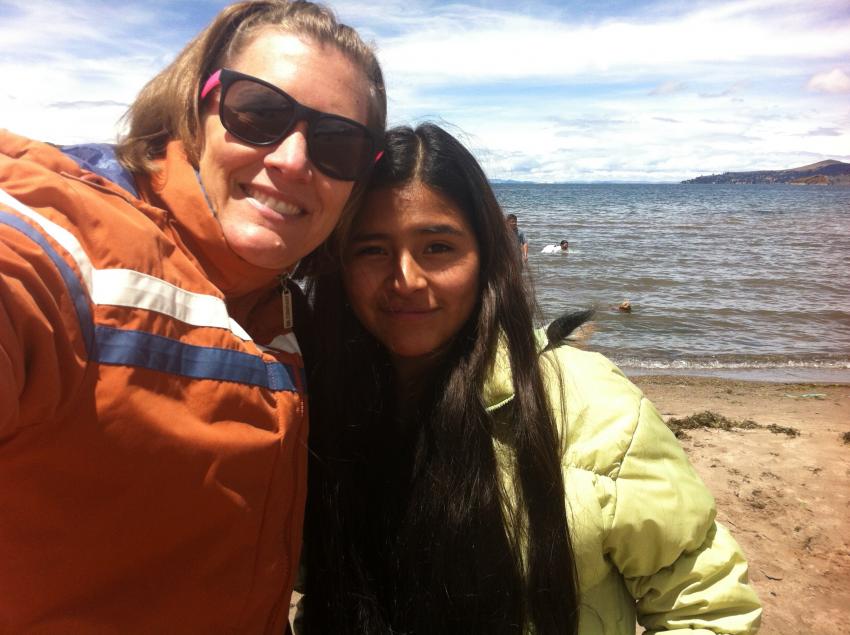Fortner ’99 Helps Improve Quality of Life for Patients in Peru

When Jodee Fortner ’99 first met 12-year-old Olga, the young girl and her family hoped that treatment at Medical Ministry International (MMI)’s Hope and Health Clinic in Peru would correct Olga’s congenital clubfoot, which rendered her foot twisted at an almost 180-degree angle, her toes nearly facing behind her.
Over the next three years, Fortner led treatment efforts that were documented in Olga: An Arequipa Story by Canadian filmmaker Gabriel Lee, a winner in the Big Rock Eddies Short Film Festival.
Prior to Fortner’s treatment, Olga never received medical care or advice due to financial constraints.
“Olga’s treatment was uncharted territory for me,” said Fortner, who typically corrects clubfoot in infants, as opposed to adolescents. “With the help of local orthopedic doctors, Olga’s foot has greatly improved, as has her quality of life. She is more confident, and is even playing wheelchair basketball alongside adults with physical challenges in her hometown.”
Throughout the process of working with Olga and her family, Fortner also facilitated physical therapy training that prompted a local doctor to establish Arequipa’s first Ponseti clubfoot treatment clinic. Now, pediatric patients receive quality care in the city, and obtain the braces they need to maintain correction at the Hope and Health clinic.
From Arcadia to Arequipa
Fortner was first exposed to international service as a Physical Therapy student at Arcadia. Through the University, she traveled to Mexico and Jamaica to provide pro bono physical therapy treatment. After several post-graduate service trips to Peru, Fortner moved to Arequipa in 2010 and started a permanent physical therapy clinic for low-income patients through MMI, an organization that strives to establish sustainable medical aid around the world.
Since then, Fortner has led students and volunteers from Arcadia, Slippery Rock, and Southwest Baptist universities to Peru, providing pediatric and adult health care services and physical therapy equipment—including wheelchairs, braces, walkers, and crutches—to individuals with disabilities.
“My patients often have lower incomes due to the financial strains of their disabilities,” said Fortner. “There are no insurance companies that pay for equipment like wheelchairs—many specialized wheelchairs for children aren’t even available. We see patients who can’t afford to pay for private therapy, receive therapy at hospitals that is inadequate, or travel three to five hours from cities where there are no therapy services.”
As director, Fortner trained her staff to take over the clinic in June 2017. Currently, two full-time and three part-time Peruvian therapists provide services, while the therapy team sponsors education courses for local therapists taught by American professors, including Adjunct Professor of Physical Therapy Jane Styer-Acevedo.
Additionally, Fortner’s staff and volunteers offer spiritual care to families that suffer emotional or relational strains.
“The field of Physical Therapy has grown tremendously in the past eleven years, since we started our work in Arequipa,” said Fortner. “Therapists no longer just perform passive range of motion tests on children with disabilities. Now, [they’re using] cutting-edge techniques like neurodevelopmental treatment.”
To continue advancing therapy practices domestically and abroad, Fortner encourages therapists and students to support Hope and Health Clinic’s physical, occupational, and speech therapy teams. MMI welcomes professionals from all medical fields, including doctors, nurses, and optometrists, as well as non-medical personnel interested in general assignments. Volunteers can sign up for projects at www.mmicanada.ca.

